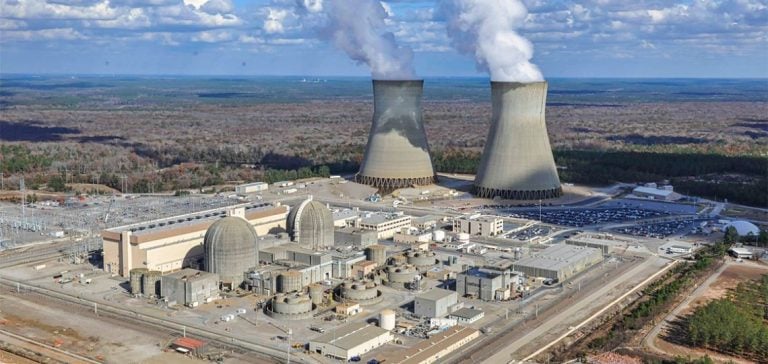The members of the intergovernmental BRICS organization, currently comprising Brazil, Russia, India, China, South Africa, Iran, Egypt, Ethiopia, and the United Arab Emirates (UAE), plan to intensify their cooperation in the field of nuclear energy. This initiative is part of the expansion of BRICS, now sometimes referred to as BRICS+, which includes more than 20 other countries interested in joining the organization, widely seen as a counterbalance to the G7 group of industrialized nations.
The current presidency of BRICS+, expanded from 5 to 10 members this year, is held by Russia. The annual summit will take place next week in the city of Kazan. Ahead of this event, the BRICS+ Business Forum is underway, with a particular focus on collaboration in the field of peaceful uses of nuclear technology, discussed during a meeting at the Moscow Atom Museum.
Initiatives and Objectives of the Nuclear Platform
Alexey Likhachev, Director General of Rosatom, stated that nearly all members of the organization are implementing projects in the field of nuclear energy. “Today, many BRICS members are the technological drivers of the international nuclear market. The common experience can and should be used and replicated throughout the BRICS space and across the planet as a whole. Therefore, we propose to join forces within the framework of the BRICS Nuclear Platform, a voluntary alliance of companies, professional nuclear communities, and NGOs supporting the development and implementation of nuclear technologies,” he explained.
BRICS member countries currently have 390 gigawatts electric (GWe) of operable nuclear power units, with an additional 66 megawatts electric (MWe) under construction. One of the platform’s objectives is to assist companies, if necessary, in persuading their governments to view nuclear energy as a clean energy source, and to share assistance in addressing other issues that may be hindering nuclear energy projects.
According to Russia’s official Tass news agency, Likhachev informed reporters that the process of legal formalization of the Nuclear Energy Platform had begun. Its main aim is to develop and implement best practices related to the energy and non-energy use of nuclear technologies for peaceful purposes in BRICS and BRICS+ markets, as well as to develop incentive mechanisms and project implementation models in member countries.
Support and Perspectives of BRICS Members
It was reported that the platform is intended for companies, nuclear power plants, and related organizations—“those capable of contributing to the development of the nuclear power sector”—and that the plan was unanimously approved.
Orpet Peixoto, Deputy Chairman of the Brazilian Association for the Development of the Nuclear Industry, expressed his satisfaction: “I am very happy with the progress in the formation of the Platform. I believe it will prove fruitful for BRICS countries and BRICS associate member-states… we are one of the very few countries in the world with all the elements of the nuclear fuel cycle, but we need support, we need financing, and we know that we can obtain them through cooperation with BRICS countries. So, I see Brazil has a lot to gain from cooperation within the platform.”
Meanwhile, speaking at the BRICS+ business forum on Friday, Russian President Vladimir Putin stated that BRICS members now hold a larger share of the global gross domestic product than G7 members. He added that its members are “in fact the drivers of global economic growth” and that, with the development of “communication channels, technological and educational standards, financial systems, payment instruments, and, of course, mechanisms for sustainable, long-term investment… the economic growth of BRICS members in the future will increasingly depend less on outside influence or interference.”
Implications for the Global Nuclear Energy Market
This initiative could have significant repercussions on the global nuclear energy market, strengthening the position of BRICS+ as key players in the development and dissemination of nuclear technologies. Increased collaboration among these countries could facilitate the sharing of resources, technological innovation, and the establishment of common standards, thereby promoting a faster and more efficient expansion of nuclear energy for peaceful purposes.
Challenges and Opportunities
However, this cooperation is not without challenges. Political divergences, varying national regulations, and concerns related to nuclear safety can impede the effective implementation of projects. Nevertheless, the opportunities offered by enhanced collaboration, particularly in terms of financing, research and development, and the sharing of best practices, are considerable.
Future Perspectives
In the long term, the BRICS+ Nuclear Energy Platform could play a crucial role in the global energy transition by providing a viable alternative to fossil fuels and contributing to the reduction of carbon emissions. The success of this initiative will depend on the members’ ability to overcome obstacles and maintain a common commitment to sustainable development and international cooperation.






















